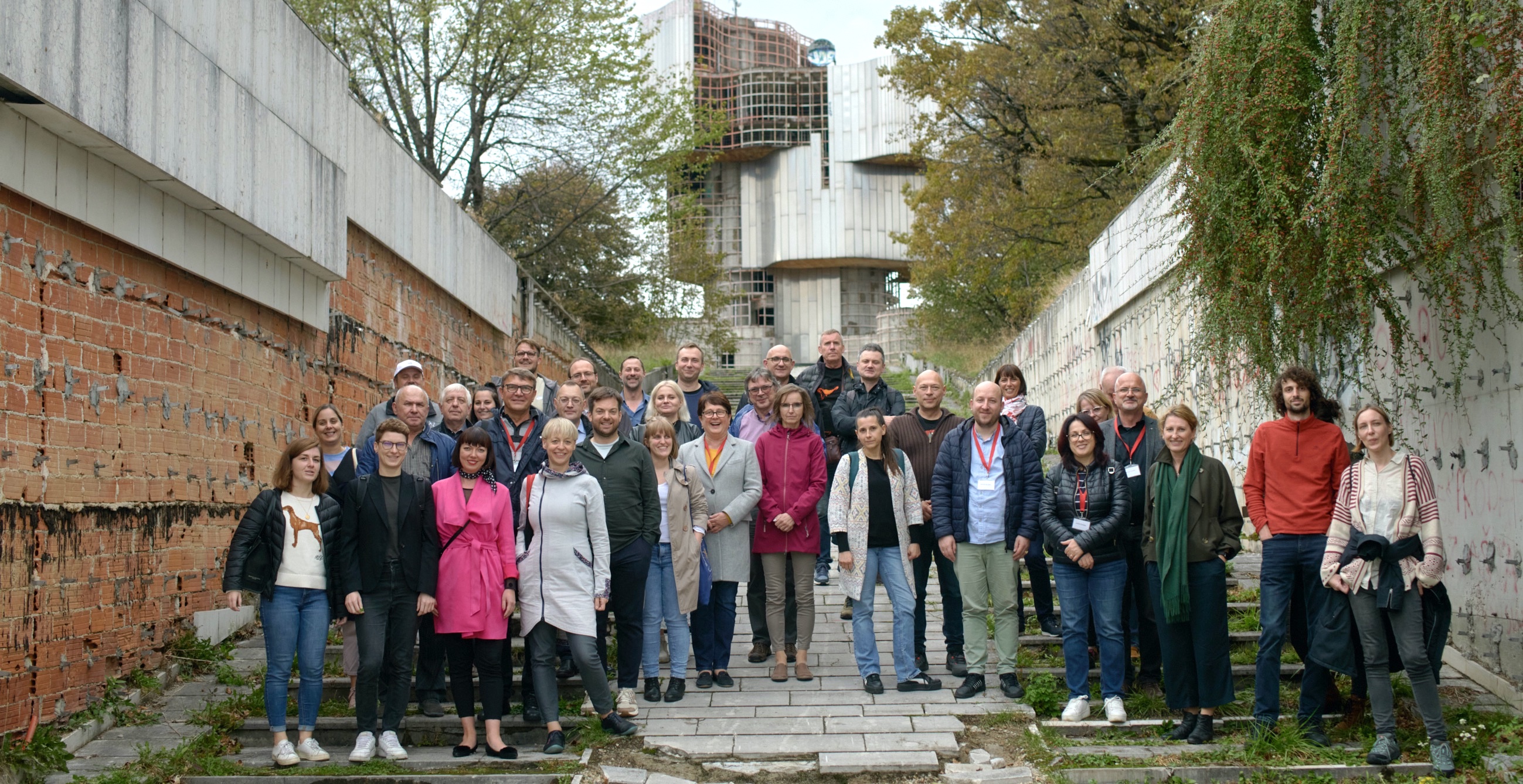
From existential hardship to the right to minority education - AGSM annual meeting in Zagreb reveals serious contrasts
14.11.2023Cramped, stressful and worrying - the situation of many women from minority communities in economically underdeveloped areas was the topic of the first debate at this year's AGSM seminar in Zagreb, Croatia, and it got under the skin. Emotional descriptions on the podium made it clear how difficult the situation is for many women who belong to an ethnic minority in Croatia. In the less economically developed areas, where there is a lack of basic infrastructure and social services, most of the care work involved in maintaining local communities places a disproportionate burden on women's daily lives.
Especially in the rural areas of the Kordun and Banija regions, the latter still scarred by the severe earthquake in 2020, the living situation is dramatic due to the lack of basic infrastructure such as water, electricity and medical care. Projects organised by Jelena Nestorović from the Serb National Council in Croatia (SNV) are a blessing. "We try to educate women about their rights and enable them to complete higher education," she explained.
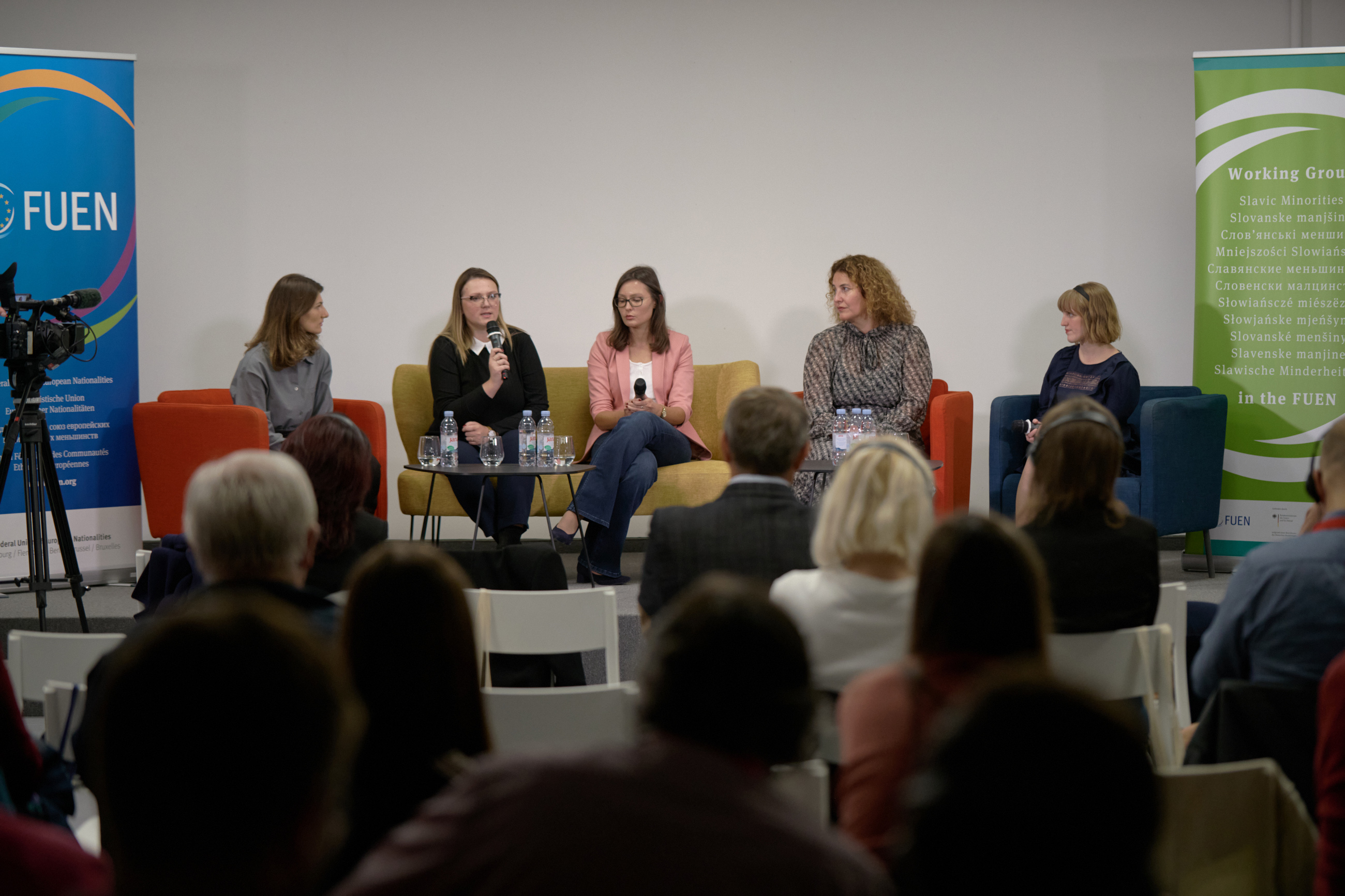
Women in minority communities was the topic of the first panel discussion at the AGSM seminar. Credit (all pictures):
This meant that the participants at this year's annual conference of the FUEN Working Group of Slavic Minorities (AGSM) in Zagreb, Croatia, were right at the centre of one of the major issues facing the host minority of Serbs in Croatia. The conference took place from 19 to 22 October. A total of 50 people took part, 14 of them from the host Serbian minority in Croatia and 36 external participants from other minorities - e.g. Molise Croats from Italy, Sorbs from Germany and Pomaks from Greece. They covered a pleasingly broad spectrum of countries and minorities: 13 different minorities from 12 countries were represented.
The programme also included exchanges with political representatives at local and national level and a panel discussion on minority rights in theory and practice - in a very special location: the historic Assembly Hall in Zagreb City Hall. The AGSM delegation was welcomed by Aleksandar Milošević, SNV Secretary General, Olivia Schubert, FUEN Vice-President, Marta Kiš and Rada Borić, members of the City Assembly and representative of the Mayor, Nemanja Relić, delegate of the Vice-President of the Croatian Government, and Furio Radin, Vice-President of the Croatian Parliament.
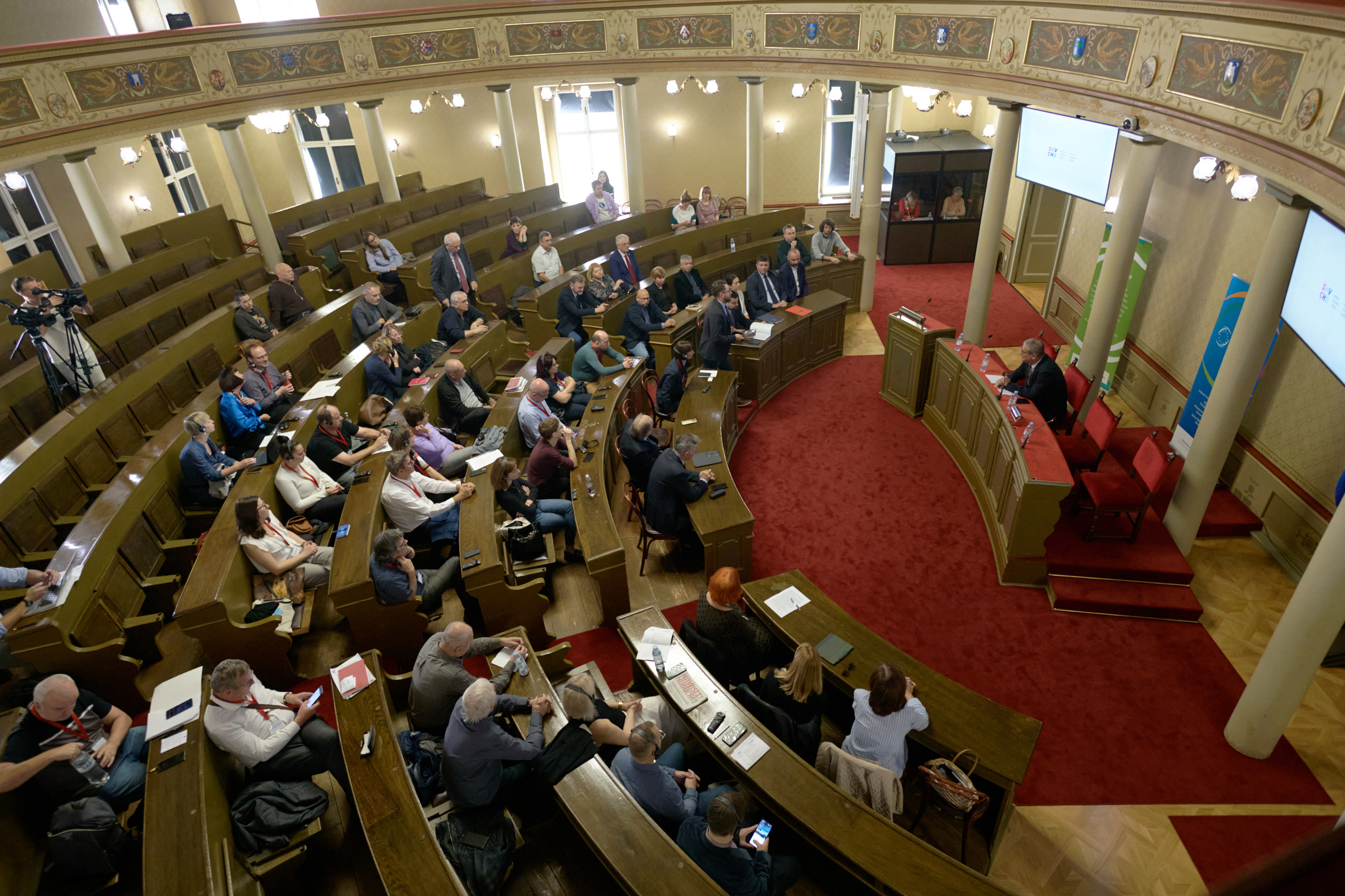
In the historic assembly hall in Zagreb City Hall, there were meetings with political representatives from Croatia.
In the subsequent discussion round, the participants learned that there are 22 recognised national minorities in Croatia, all of which are mentioned in the constitution. The levels of their political participation range from municipal councils to city and regional councils to members of parliament, which Armin Hodžić from the Minority Council of the City of Zagreb was able to explain well. It was also discussed that although there is extensive protection and political support for minorities on paper, implementation is, as is so often the case, a challenge.
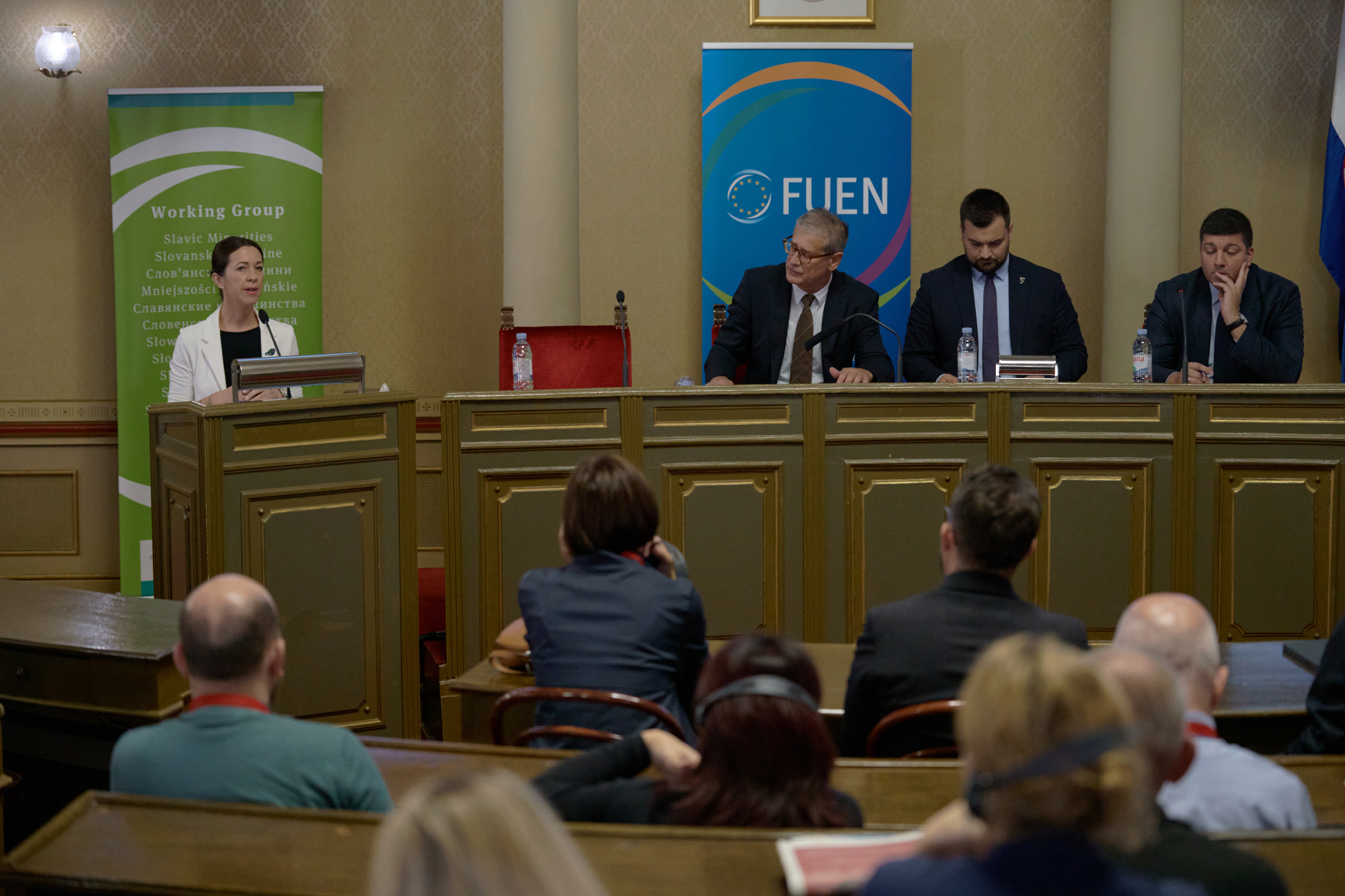
Tanja Novotni Golubić from the Czech minority in Croatia described the reasons for the population decline.
In addition to the debates and excursions about the host minority, the participants of the annual meeting exchanged views on the current situation in their respective minorities, looked back on the AGSM's activities over the past year and considered future projects. The AGSM brochure, which is now also available in Macedonian, was presented (can be viewed online here).
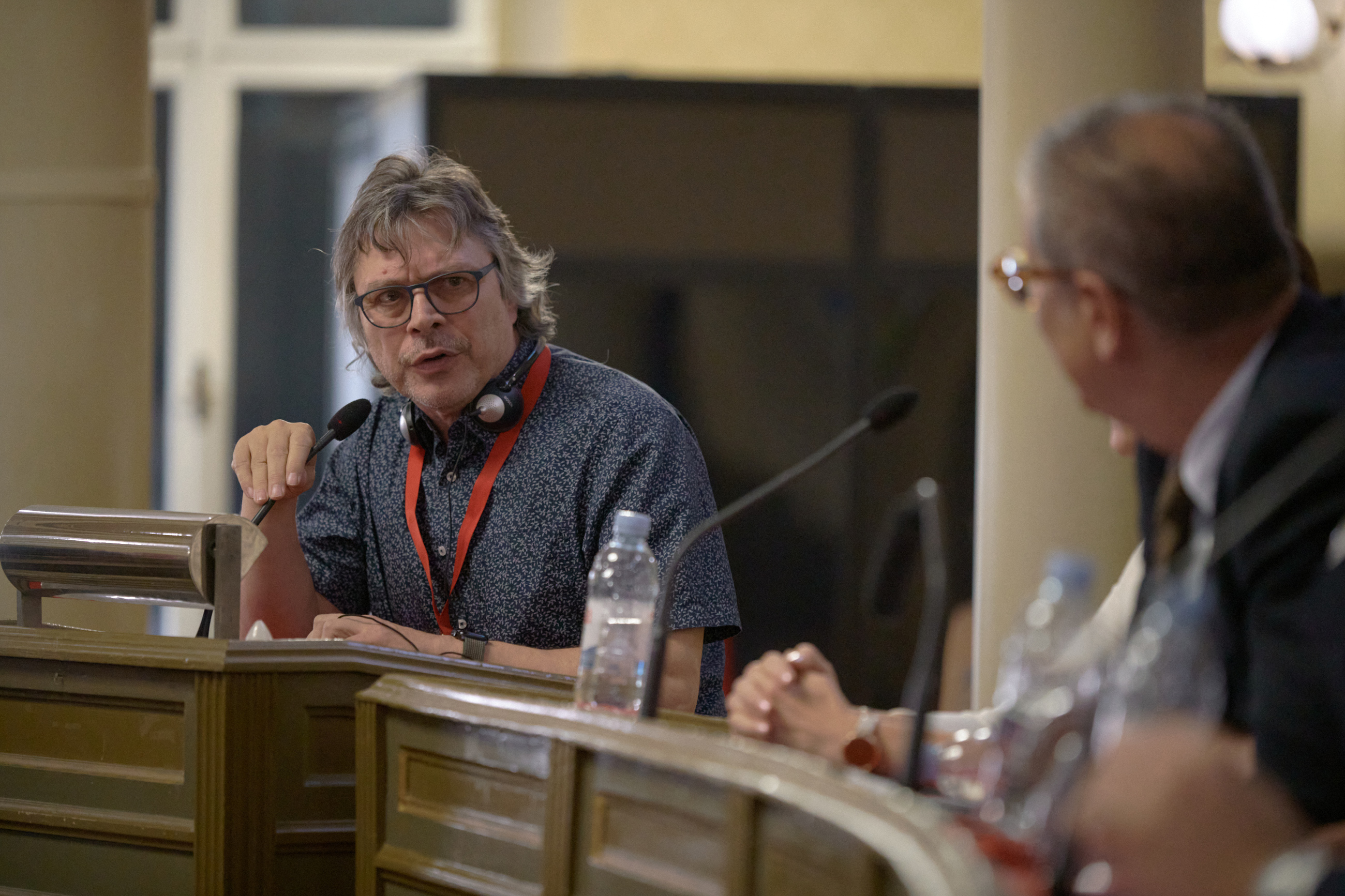
Dr. Hartmut Leipner (photo) from the Association of Lusatian Sorbs (Domowina) in Germany was unanimously elected as the new AGSM spokesperson. He succeeds Dr Angelika Mlinar, a Carinthian Slovene, who had to relinquish the office for professional reasons.
During an excursion to the Banija region, which is largely inhabited by the Serbian minority in Croatia, the participants were finally able to gain a personal impression of the situation following the devastating earthquake in December 2020 and learn about the challenges on the ground from different perspectives during a panel discussion. The natural disaster severely damaged or destroyed the homes and livelihoods of the residents. The National Council of Serbs in Croatia with its local branches was very active in social and reconstruction projects and was able to support the residents quickly and unbureaucratically - also thanks to FUEN and its member organisations, which collected money for the minority affected by the earthquake in a fundraising campaign in 2020/2021.
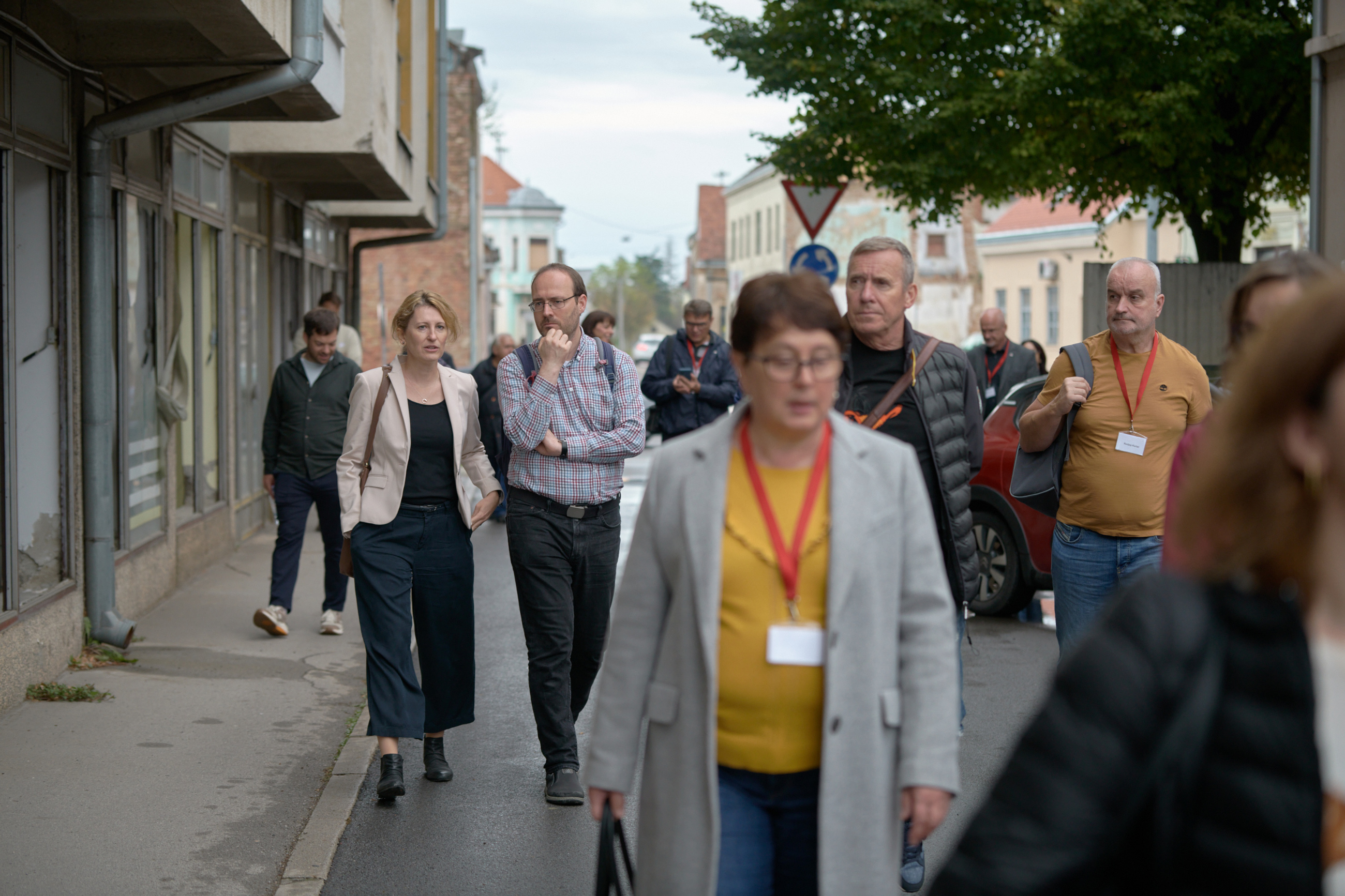
The excursion included the town of Glina, where the after-effects of the devastating earthquake in 2020 are still clearly visible.
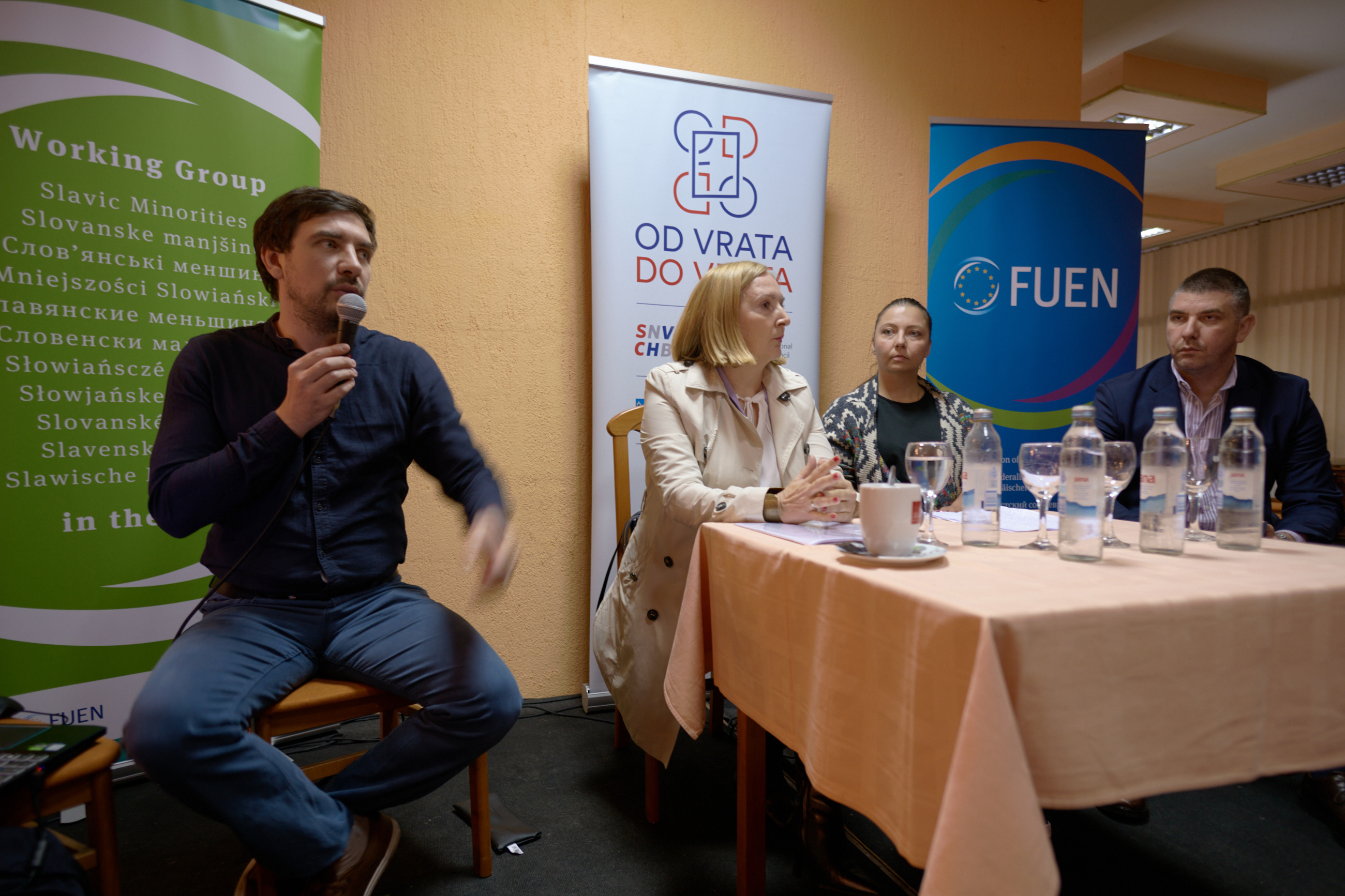
A panel discussion provided insights into the humanitarian aid provided by the minority organisation in the Banija earthquake region.
The excursion then led to Vrginmost, one of the municipalities in which the Serbian minority forms the majority. Vrginmost was only recently renamed after the town was renamed "Gvozd" due to territorial conflicts during the Yugoslavian war. Here we also visited the "Petrova gora" monument to the people's liberation struggle (see cover photo) and the partisan hospital.
The culture of remembrance and coming to terms with past conflicts was an important topic at all stops on the excursion, both in terms of the period after the world wars, the resistance struggle and after the last Yugoslav war. It became clear that the process of coming to terms with the past is still largely in its infancy.
Many thanks to the hosts from the Serb National Council in Croatia (SNV) for their excellent cooperation in organising the seminar.
The AGSM
With 32 member organisations, the Working Group of Slavic Minorities is already a well-established working group in the FUEN network, whose annual seminars of Slavic minorities in Europe, each organised at a different location, have a long tradition. In 2017, the coordination of the AGSM was taken over by the FUEN Coordination Office, which meant that the working group's long-standing efforts to further develop and professionalise its activities could finally be realised.
Further information and a picture gallery of the seminar can be found at https://agsm.fuen.org
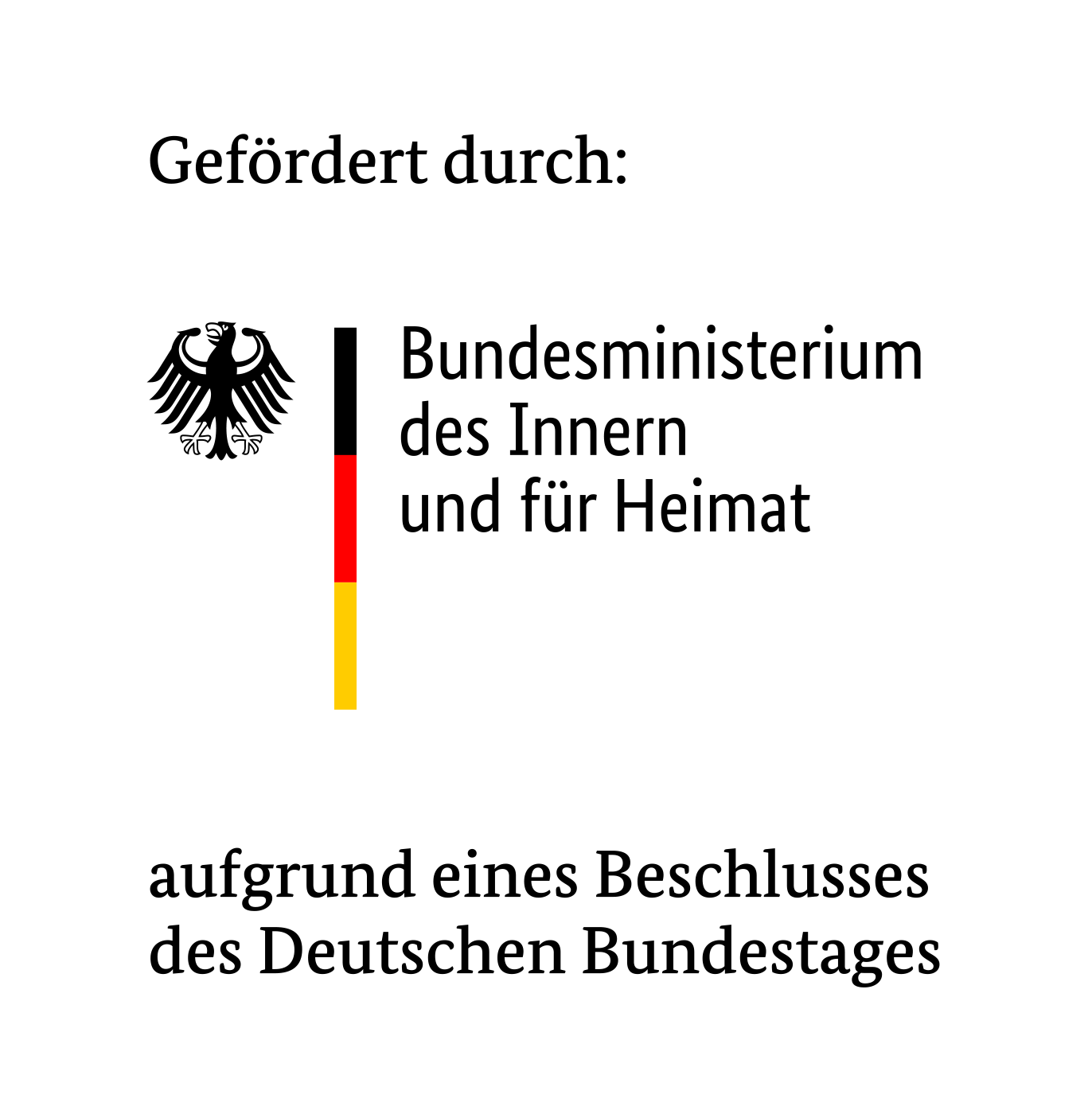
COMMUNIQUÉ DE PRESSE
- FUEN wishes you a peaceful Christmas season, restful days and a bright, hopeful start to the new year!
- FUEN calls on the EU to act over systematic ethnic-based land confiscations in Slovakia
- Women of Minorities conference in Budapest calls for structural change to ensure equal political participation of minority women
- FUEN President Olivia Schubert at UN Forum on Minority Issues in Geneva
- "Laboratory of Peace": 28th Seminar of Slavic Minorities held in European Capital of Culture Gorica/Gorizia
- Equality in Political Participation and Representation: Third “Women of Minorities” Conference to Be Held in Budapest
- FUEN Working Group on Education discusses challenges and future of minority schooling in Europe
- 28th Seminar of Slavic Minorities in Europe to take place in Gorica/Gorizia, Italy
- Olivia Schubert in her first interview as FUEN President
- FUEN Assembly of Delegates elects new leadership – Olivia Schubert becomes new President














